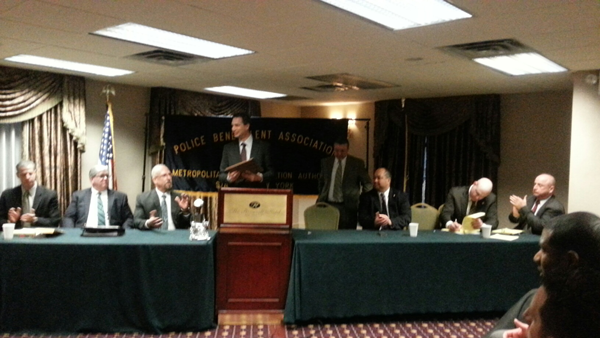Today’s post comes from guest author Thomas Domer, from The Domer Law Firm.
I recently wrote an article in the national magazine for the Worker’s Injury Law Advocacy Group (WILG), the Worker’s First Watch, Fall 2013 reviewing the worker’s compensation resources research report indicating that the worker’s compensation industry is extremely profitable. I began representing injured workers in 1976. It seems every year since then worker’s compensation insurance carriers have complained they are not making profits and the culprit responsible is increased benefits paid to workers. In fact, over the last 20 years the insurance industry has been profitable in 16 of 19 years and broke even in one year. Several factors account for this profitability, including worker’s compensation insurance carriers successfully pursuing deregulation and “reform” measures to restrict eligibility.
The net result of increasingly restrictive rules for compensability in many State worker’s compensation systems as a result of “reform” resulted in many workers with disabilities caused by work who did not receive worker’s compensation benefits.
The general trend since the early 1990s has been to restrict coverage through State statutory and administrative “reform”. Many workers face lengthy litigation and frustration. More restrictive regulations may preclude claims where the worker lacks “objective” medical evidence for his injury, or is unable to medically document persistent pain, or has a disease resulting from multiple causation that cannot be distinguished from workplace disease, or has job stress related disorders. One significant problem is that many injured workers fail to file for benefits. (For those of us in the trenches daily, these pose obstacles to compensability.) Among the many reasons for failure to file are:
- Ignorance of worker’s compensation and eligibility.
- Ignorance of the work-relatedness of the condition. (Many workers know they suffer an impairment but do not know the health condition is caused by work.)
- Reimbursement for medical care or Short Term Disability benefits available. (Many workers use Short Term Disability or group medical insurance rather than worker’s comp.)
- Belief that the injury is lacking in sufficient severity.
- Many workers fear job loss or other forms of retaliation, who do not want to report a condition as work-related.
- Workers do not want to be perceived as complainers or careless.
- Deciding not to file based on the negative experience of co-workers.
- Fear of the stigma associated with being a worker’s compensation claimant. (Much of this stems from the intense focus on fraud perpetrated by the insurance industry, resulting in increased levels of stigmatization, decreasing the likelihood injured workers will file for benefits.)
- Pressure from co-workers on safety incentive programs. (These programs, sometimes called “Safety Bingo” create incentives not to report.)
Those of us who have hearings daily that involve the non-reporting of an injury, or significant time delay between the occurrence of an injury and the reporting of an injury, can refer to the above list for some ammunition on the “non-filing” or “late filing” issues.

Prior results do not guarantee outcomes.
Attorney Advertising.






